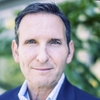Welcome to BARBRI, the trusted global leader in legal education. Continue to access the same expert-led Strafford CLE and CPE webinars you know and value. Plus, explore professional skills courses and more.
About the Course
Introduction
This CLE webinar will offer personal injury trial counsel tools to help prevent runaway verdicts in high-stakes cases. The panel will explore the challenges that jurors have in deciding damage awards, the non-evidentiary and extra-legal methods they use to award damages, and what new research says about the themes and jury characteristics of high-damages jurors. The panel will offer ways counsel can plan better in the discovery process to provide jurors with more substantive methods to come to a reasonable number.
Description
Deciding on appropriate damages is one of the most difficult challenges for a jury, especially in noneconomic cases when they are typically instructed to ascertain a "reasonable amount" of damages for intangible harm.
But how do attorneys provide evidence of something as inherently subjective as emotional distress or pain and suffering? How does a plaintiff provide evidence of future pain and suffering or emotional distress when no one can predict a future emotional state? And what is a "reasonable amount"?
New research offers insight into what motivates the "high-damages juror and how to avoid creating them.
Listen as our experienced panel helps counsel better understand the discreet components outside the law and evidence that jurors use to decide these types of cases, as well as offers strategies that can be used throughout discovery and trial to help prevent runaway verdicts in high-stakes cases.
Presented By

Mr. Gabriel is one of the preeminent trial consultants in the country. Since 1985, Mr. Gabriel has been a leader in the field of jury research, jury selection and litigation communication with experience in nearly 2,000 trials in both the civil and criminal arenas across the country. CBS News has said that Mr. Gabriel is “by reputation, one of the best trial consultants in the country.” He has assisted counsel in the Aaron Hernandez acquittal as well as the Casey Anthony, O.J. Simpson, Phil Spector, Enron, Whitewater, Kwame Kilpatrick, Heidi Fleiss, and numerous other high-profile civil and criminal matters. Three cases he has participated in have resulted in United States Supreme Court decisions. Mr. Gabriel is the author of Acquittal: An Insider Reveals the Stories and Strategies Behind Today’s Most Infamous Verdicts about his high-profile trial work, which was optioned by Warner Brothers and developed for CBS by Jerry Bruckheimer Productions. He is also the co-author of Jury Selection: Strategy and Science, as well as contributing to Bennett’s Guide to Jury Selection and Trial Dynamics. Mr. Gabriel was a regular columnist for Lawyers USA on trial strategy and has authored numerous articles on litigation communication, social science, and jury research for numerous State Bar Journals and other legal publications including the American Bar Association, the Daily Journal, The Jury Expert, Notre Dame, and Loyola Law Reviews. He has also written feature articles for CNN.com and HLN.com on noteworthy trials and political/social issues. Mr. Gabriel appears regularly on CNN, CBS, ABC, NBC, Fox, MSNBC, CNBC, and NPR as a commentator on high-profile trials.

Ms. Shaw is an award-winning researcher specializing in jury decision-making. She graduated with honors from the University of Chicago and earned her Ph.D. in Psychological Science from the University of California, Irvine. Ms.Shaw has studied juror perceptions of evidence, credibility, conformity, lie-detection, race and implicit bias. She has published her jury studies in top journals such as Law and Human Behavior. Ms. Shaw has presented her jury findings at conferences across the country and has earned awards as both a researcher and a speaker. She has worked in trial consulting since 2015, including cases involving personal injury, medical malpractice, employment disputes, wrongful death and fraud. Ms.Shaw is experienced in leading focus groups and mock trials, designing surveys and analyzing data.
-
This 90-minute webinar is eligible in most states for 1.5 CLE credits.
-
Live Online
On Demand
Date + Time
- event
Wednesday, April 24, 2024
- schedule
1:00 p.m. ET./10:00 a.m. PT
- Challenges jurors face in deciding noneconomic damages awards
- Nonevidentiary, extra-legal components to large damage jury awards
- Research findings about juror decision making
- Recommendations for defense counsel
The panel will discuss these and other important issues:
- Do jurors who appear pessimistic about the future tend to give higher awards?
- How much sympathy should the defense show for a plaintiff to prevent a runaway verdict?
- How can counsel gauge juror beliefs about the plaintiff's resilience?
Unlimited access to premium CLE courses:
- Annual access
- Available live and on-demand
- Best for attorneys and legal professionals
Unlimited access to premium CPE courses.:
- Annual access
- Available live and on-demand
- Best for CPAs and tax professionals
Unlimited access to premium CLE, CPE, Professional Skills and Practice-Ready courses.:
- Annual access
- Available live and on-demand
- Best for legal, accounting, and tax professionals
Unlimited access to Professional Skills and Practice-Ready courses:
- Annual access
- Available on-demand
- Best for new attorneys
Related Courses

Apparent Agency Liability and Gig Economy Defendants: Critical Facts and Themes; Discovery Strategy; Dean v. Uber
Friday, April 10, 2026
1:00 PM ET/10:00 AM PT
Recommended Resources

Making Continuing Education Work for You, Anytime, Anywhere
- Learning & Development
- Career Advancement

Getting the Most Out of BARBRI Resources
- Learning & Development
- Business & Professional Skills
- Talent Development

